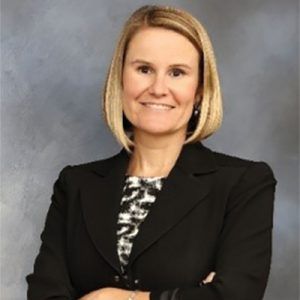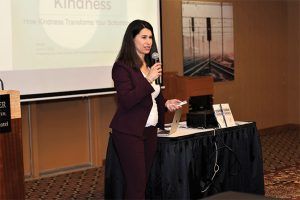Organizational leaders have been navigating uncertain times for over a year, and many changes have occurred at an accelerated pace, including changes within the workplace and workforce. As a result, leaders must evaluate their abilities, preferences, and perspectives to continue successfully leading their organizations through this new era of uncertainty and constant flux.
Leadership development programs can play a pivotal role in preparing leaders to navigate the challenges of today and tomorrow. However, is your leadership program relevant to the need to lead for today and tomorrow? If the format, delivery, and content of your leadership programs have not been “refreshed” within the last two years, the program may not be relevant.
Think back to when your leadership program was initially created. What was the purpose? What were the needs of the community?
Now fast-forward to today and ask yourself: Is the purpose still relevant and meaningful? Are the needs of the bank (employees and customers) the same? Are we preparing leaders to be able to lead the challenges being presented today and in the future? Are we delivering content in a way that appeals to all generations? And is the format relevant to how younger professionals learn?
Regarding content, if you’re following the trends mentioned in the popular leadership books, such as servant leadership, authentic leadership, etc., you may need a refresh. The pace of change is faster than the time needed for researchers to collect data and publish their strategies in a book or even record a podcast, so relying on current periodical publications from reliable sources may be your best resource. Having compiled the latest literature, here are a few key content components that should be included in leadership programs to best prepare your community leaders for today and tomorrow.
- Self-Awareness – Leaders must know their intentions, biases, and blind spots. This can be done by utilizing reliable assessment tools with follow-up reflection exercises.
- Emotional intelligence –Current research has identified high emotional intelligence as one of the top qualities needed for leadership success. Leaders need to be able to (1) recognize their own emotions, (2) recognize the emotions of others, and (3) utilize emotions constructively to navigate challenges. Attributes such as emotional expression, resiliency, and empathy are critical for future success.
- Diversity Appreciation & Leverage – The workplace is more diverse than ever, and leaders need to recognize the importance of diversity and identify ways to leverage diversity for organizational success. And remember, diversity includes many areas such as age, gender, ethnicity, cultural background, political views, and disabilities, to name a few.
- Enhanced Communication Skills – Due to the diversity present in the workplace, leaders need to enhance their communication skills as it relates to styles and mediums and enhance their ability to communicate with transparency and compassion.
- Inspire Innovation – Innovation is a must to survive in this fast-paced, ever-changing world. The younger generations expect innovation, and leaders need to be able to inspire innovation and create cultures that embrace and support innovative thinking.
- Advanced Decision-Making Skills – Leaders are increasingly challenged to make decisions faster and with less information. They are encouraged not to rely on “gut” because, after all, “gut” is based on previous experience, and previous experience may not be relevant to today’s environments. Leaders need to identify ways better to utilize data in combination with “gut” to make better-informed decisions.
And the list of attributes continues to grow.
To quote a famous cliché, “The only thing constant is change,” and leadership programs are no exception. The curriculum should be fluid, dynamic, relevant, and constantly changing if you want to best prepare current and future leaders.
Dr. Furman is a professor and “practicing academic” at the James M. Hull College of Business at Augusta University. She is also the founder and owner of Career Potential, LLC, and provides consulting, coaching, and training. She utilizes her research and subject-matter expertise related to generational diversity, unconscious bias, career and leadership development, and emotional intelligence to have a positive, practical impact on organizations and individuals alike. You can reach her by email at mfurman@unlockcareerpotential.com or on her website at www.unlockcareerpotential.com.
Dr. Furman will be a key presenter at VACB’s upcoming 45th Annual Convention and Trade Show. Hear her “The Future Landscape of Work & Talent” session on Tuesday, October 4, at our second Business Session.








